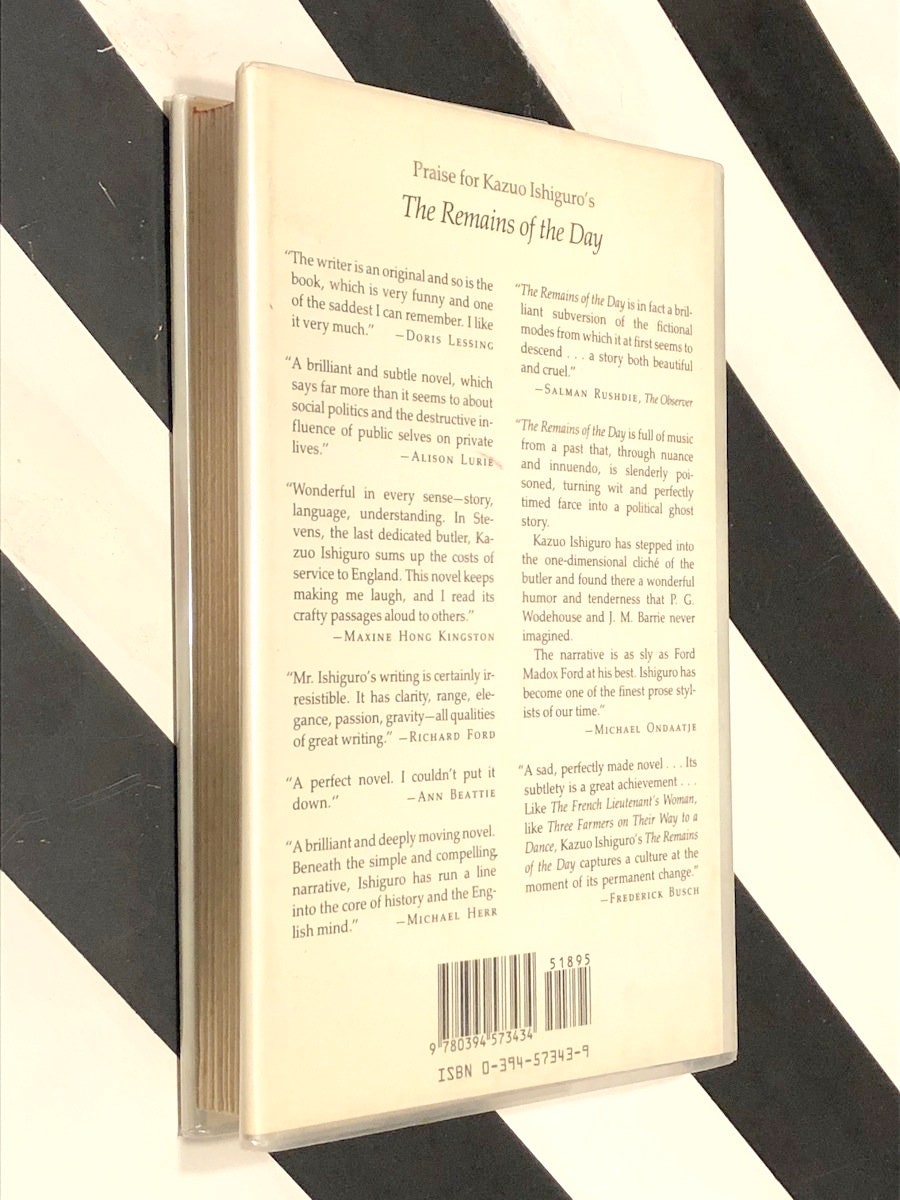

Unreliable narrators – those mysterious figures the reader must try to work out – are ten a penny in fiction. Kazuo Ishiguro, author of the Booker-winning novel The Remains of the Day. The butler says he wants to ask her if she’d consider returning to work: “Miss Kenton, with her great affection for this house, with her exemplary professionalism, was just the factor needed to enable me to complete a fully satisfactory staff plan for Darlington Hall.” But Stevens isn’t fooling anyone, especially when he lets slip that a letter (“her first in seven years, discounting Christmas cards”) contains hints her marriage is falling apart. Mr Stevens is chief of staff at an English stately home as the novel opens, in the summer of 1956, he is set to undertake a motoring trip to visit Miss Kenton, a housekeeper who left 20 years earlier to get married.

Kazuo Ishiguro’s subtle masterpiece about the private agonies of an ageing butler is hardly unknown – it won the 1989 Booker prize, after all – but sometimes you find a piece of writing so well executed, so moving and so perceptive about the lives many of us lead that you can’t help praising it to anyone not quick-witted enough to look busy.Ī lack of restraint is perhaps the best response to Ishiguro’s novel, which is the tale of a man so burdened by propriety that he lets the love of his life slip through his fingers. Over the years since I read it, I’ve turned into a Remains of the Day evangelist. Some have already had a copy thrust upon them as a gift. Some of my friends and family might roll their eyes if they see this – they’ve heard my spiel about The Remains of the Day too many times.


 0 kommentar(er)
0 kommentar(er)
